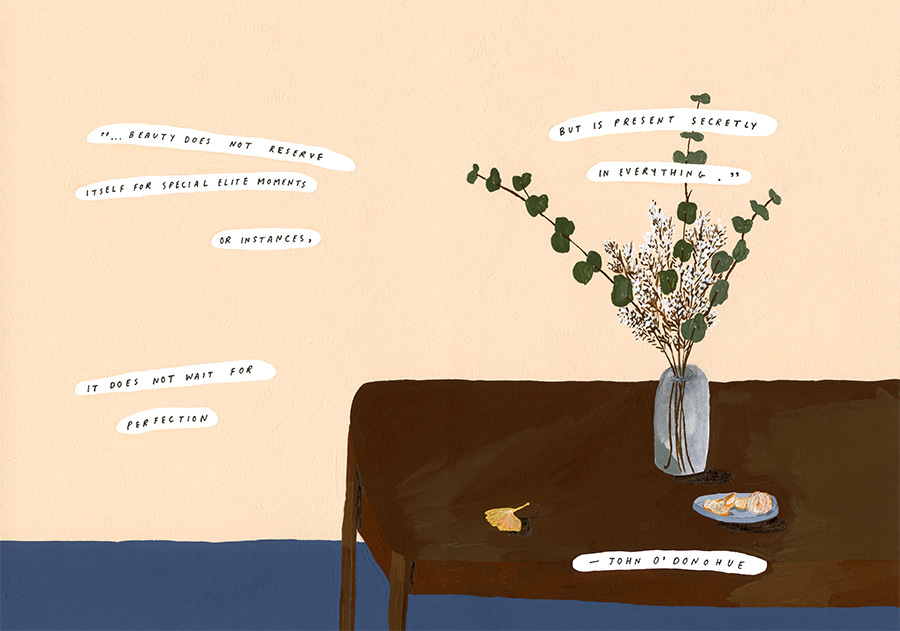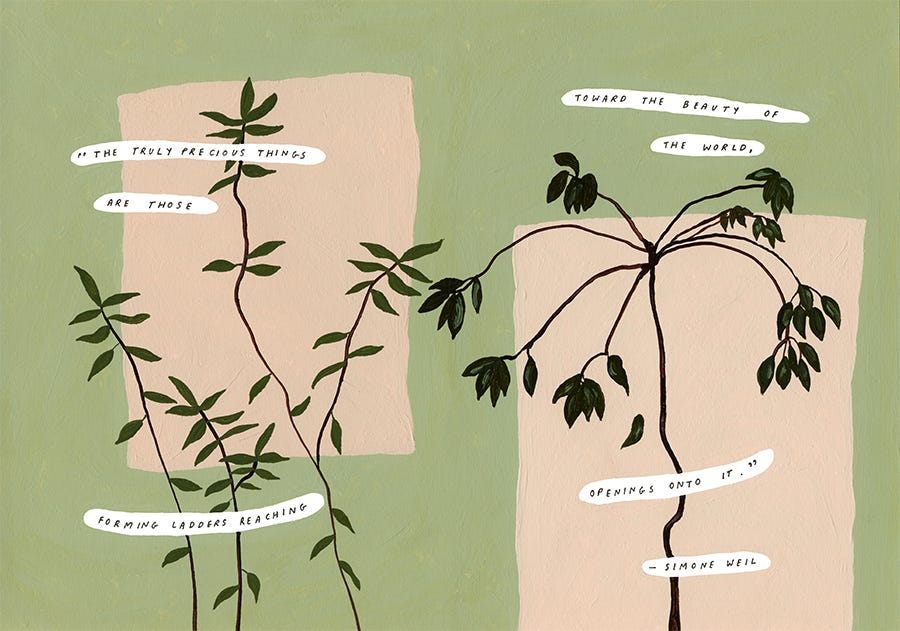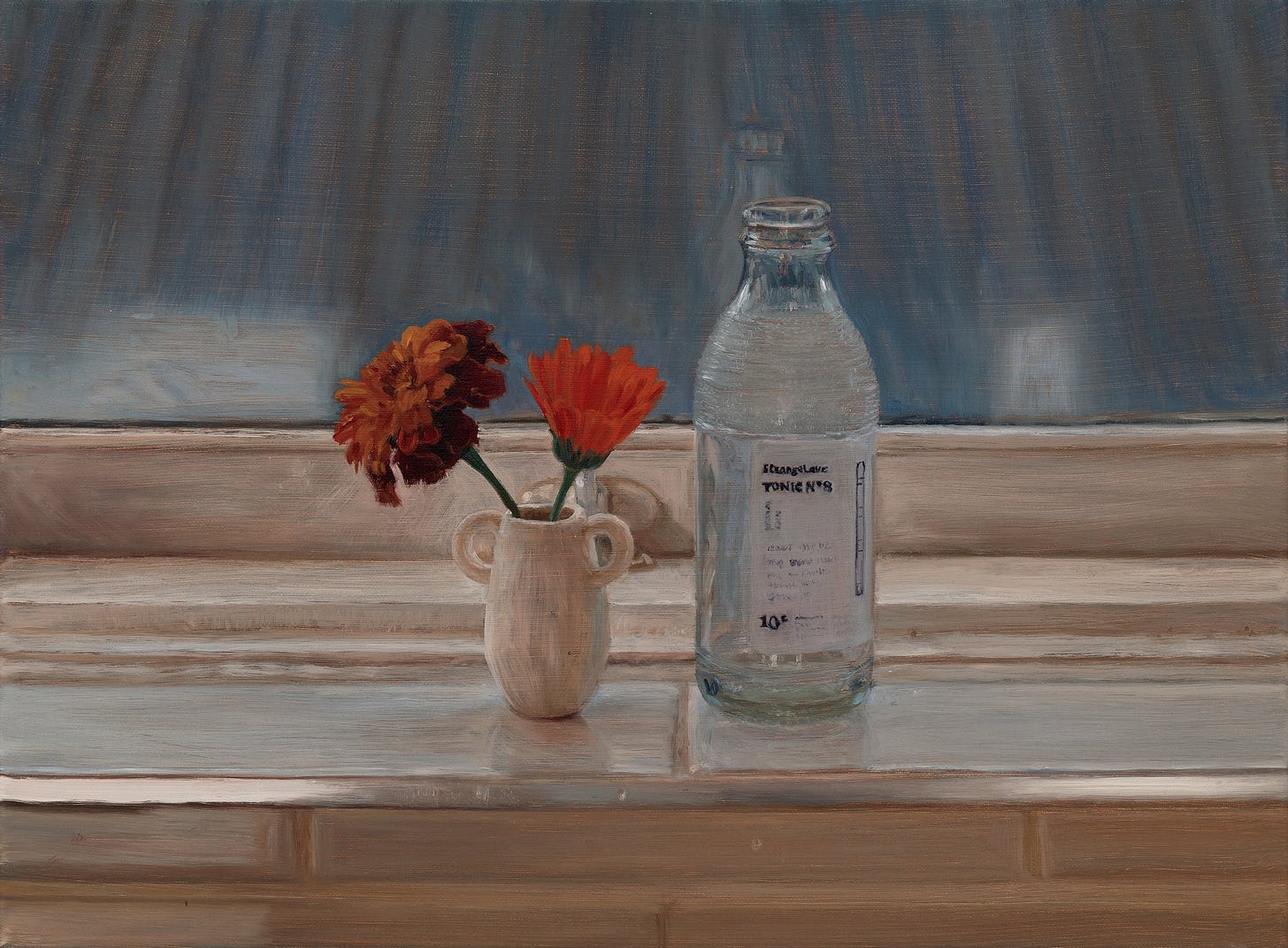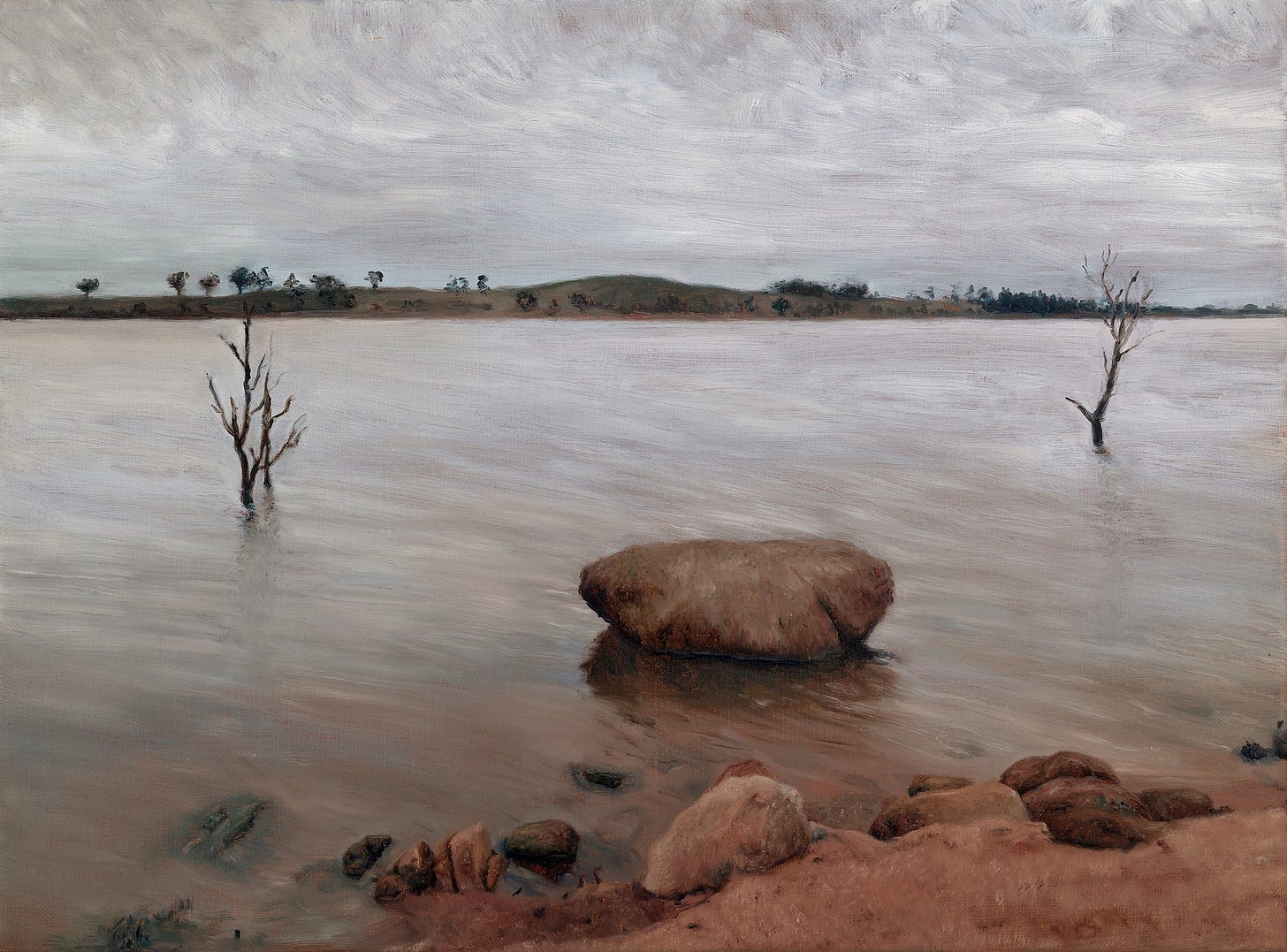No.231
For now, it is March-middle, and for now, the world falls apart then together seemingly every moment of every day.
What I’ve been thinking about, as the days shape, and misshape, are the three epigraphs I chose to place at the beginning of Everything, Beautiful. They are openings into the book and its themes, and I suppose I didn’t realise how significantly lodged their sentiments were in my body, until the world seemed to fall even more apart than it had in a long time, and I found myself grappling in a gloom for signs or reasons that I could, personally, still trust the solidity of beauty amongst it all.

I’ve decided—repeatedly—in the last few days that beauty can be far more transparent than you believe reasonable, and yet somehow hold steady enough to support you.
And I’m sure it will sound dull to many, to those who have become numbed to the unlikely miracle of anything even existing at all, but this transparent net of beauty has been in the form of sheer seasonal ordinariness—in the noticing of smallest, unassuming flowering things appearing and then dying in the garden not long after, the blackthorn hedges beginning to blossom amongst their fearsome spines, the birds that have been resolutely gathering nesting materials. That birds make nests at all.

Then, shockingly, after a long forever of barren branches and waiting, a handful of trees and shrubs around the town beginning to come into leaf—they have decided it is time, despite all of it. This is the kind of beauty we routinely fail to see, mainly because we are looking at small flickering pictures on small screens. The world looks like this! the screens scream, and look at how all of these stranger-people exist within it!

And you, too, exist there, but not as much as you exist in a place where birds build nests, and lighthouses blink, and beauty begins again and again and again, and you miss it.

A VERY SHORT STORY:
I pluck off the smallest feather from the back of your right shoulder. It settles and sticks to the side of the metal sink, and I don’t want it to leave. Desperately, I think, stay. The feather stays stuck there while I wash up breakfast dishes and wonder. It is easy enough to let latest-night-early-morning thoughts escape out of the window into the thin blue hours; you can watch the thoughts leave, weaving their way through space and time until they are nothing more than someone else’s dreams of you. In the meantime you can worry about shame and being chased by bees.
There are days when I can look at myself from just a minute away, from across a lake, or from ten miles back. Other days I am the lake. I finish the washing up and want to know what it would be like to read a book of your revelations and regret. As I soak myself in this idea the sky fills with insects; they sing orchestral pieces that I do not know, in harmonies too high-pitched for me to hear. The morning strokes every single leaf and begins to create a world of long shadows and soft-bodied creatures. I forget what cathedral bells sound like.
In the half-light it is hard to see whose feelings I am or am not stepping on—if that small shape is something with four legs or the last thing you said to me. I place a phone call, and say that I would like to share you with the sun.
POEM, from October 14th 2023:
Concerned with Atrocities, Before Breakfast
This morning I neatly slice a slightly overripe
slightly wrinkled peach
in half
It occurs to me that so much fruit of faraway places will not get
eaten
Will not get
loved, held
Instead, I read of the words said aloud by a mother in Gaza—
wishing her small baby had never been born because already
its fragile life has
gone, taken by types of violence the universe never meant
to touch its tiny form
The stars I suppose they cry themselves awake, asleep, I cannot
focus on anything
because I am eating two peach halves and
walking alongside a river
as the daily promises made by gentle people in hotter, smoke-filled apartment buildings are broken
and burned in ways
that cannot be put back together
THIS WEEK I FELL IN LOVE WITH:
Recent works by Mebourne-based artist Lucy Roleff .
(Long-time readers of the newsletter will know that I periodically fall in love with Roleff’s paintings, and consequently they can be found in newsletters No.220, No.190, No.176, No.156, No.148 and No.136.)
“No god promised us anything,
and the books neglected our names.
We were left to chase ghosts that chase us
to an elevator, out of order,
ascending to the skies.
My people write the names of their children
on arms and legs, so they can find them
later in the massacres.
They cast their gazes far into the fields.
They touch every screaming rock along the way,
every impossible branch,
hoping for a sign or a sound,
a song or a prayer,
to reunite them in the same darkness.”
— Samer Abu Hawwash, from ‘My People’, translated from the Arabic by Huda J. Fakhreddine
Paid supporters of The Sometimes Newsletter receive several additional posts each month, including things like short stories, longer illustrated essays, and more detailed looks into creative processes. The most recent of these is A Street Three Times:
















Your poem spoke to me thank you